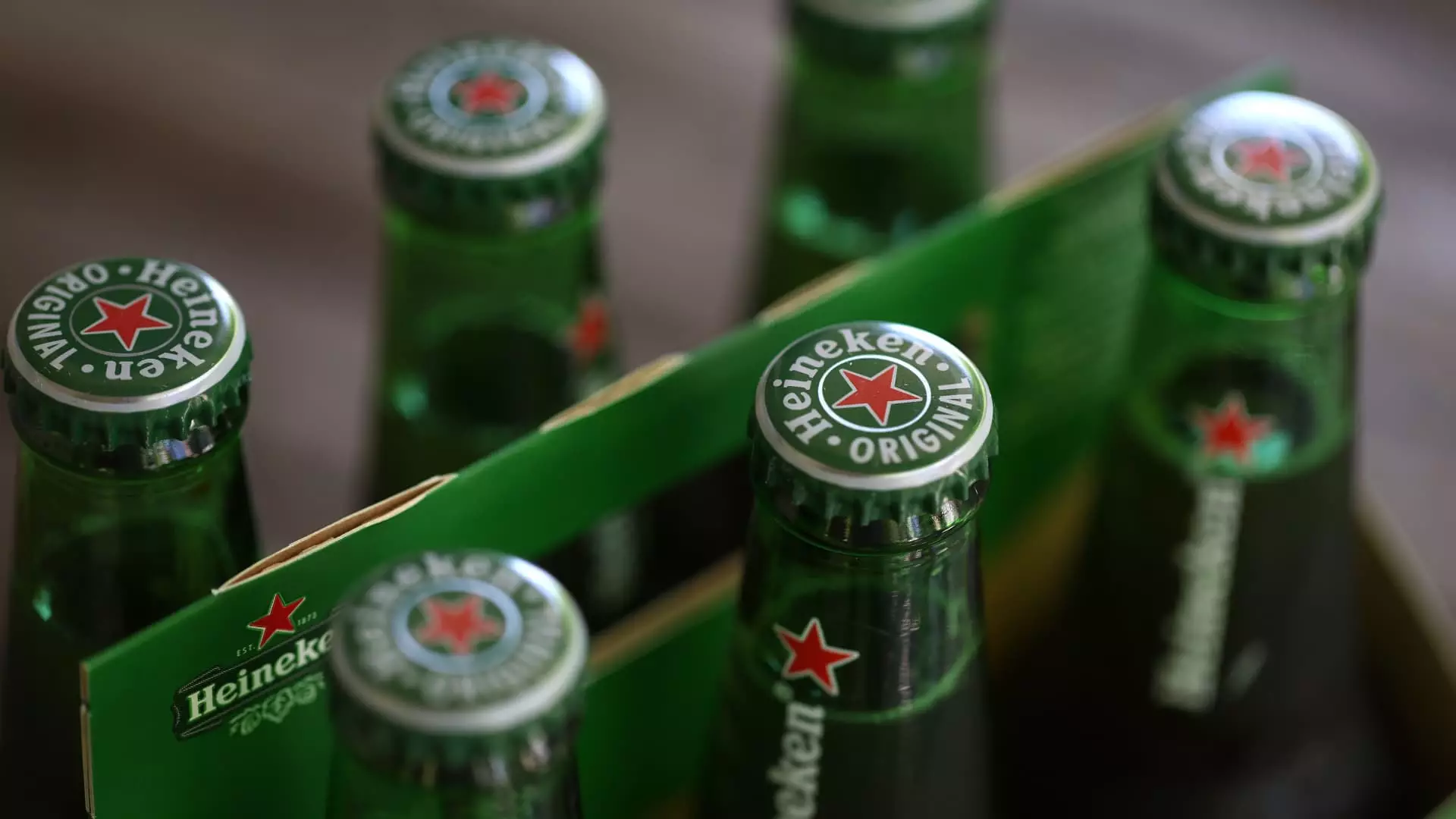Heineken, one of the largest brewing companies in the world, faced a significant setback as its shares opened nearly 7% lower following disappointing first-half profit growth. The company’s operating profit showed organic growth of 12.5%, missing analysts’ expectations of 13.2%. This resulted in a 7.9% drop in the stock price, causing concern among investors and industry experts.
Beer sales, a crucial indicator of Heineken’s performance, were expected to grow at a rate of 3.4%. However, the actual growth stood at just 2.1%, indicating a significant underperformance in this key area. Additionally, the company reported a net loss of 95 million euros due to a non-cash impairment of 874 million euros on its investment in Chinese brewing firm CR Beer. This setback was attributed to a decline in CR Beer’s share price, raising concerns about consumer demand in China.
In response to the disappointing results, Heineken revised its operating profit organic growth forecast for the year to a range between 4% to 8%. This adjustment marked a shift from the previous guidance of low to high single-digit growth. Analysts expressed disappointment with the company’s performance, noting a gap between Heineken’s messaging and their expectations. The European market, in particular, saw a major miss in profit growth, further adding to investor concerns.
Despite the challenges faced in traditional beer sales, Heineken highlighted its success in low and no-alcohol beer products. The company reported a 14% increase in sales of Heineken 0.0, a no-alcohol beer variant, showcasing growing consumer interest in healthier beverage options. With double-digit growth in key markets such as Brazil, Egypt, Vietnam, and the U.K., Heineken emphasized the importance of this category for its future growth strategy.
Heineken CEO Dolf van den Brink acknowledged the impact of input cost pressures on the company’s performance. However, he noted that these pressures had significantly reduced in key markets such as Europe and the Americas. This reduction allowed Heineken to adjust its pricing strategy, focusing on achieving a balance between volume and pricing growth. Van den Brink highlighted the importance of this approach in sustaining revenue growth amidst challenging market conditions.
Heineken’s struggles with disappointing first-half profits underscore the challenges facing the brewing industry in a rapidly evolving market landscape. The company’s focus on low and no-alcohol beer products, along with efforts to address cost pressures, will be critical in navigating future uncertainties and sustaining long-term growth. Investors and analysts will closely monitor Heineken’s strategic initiatives in the coming months to assess its ability to bounce back from this setback and deliver value to shareholders.

